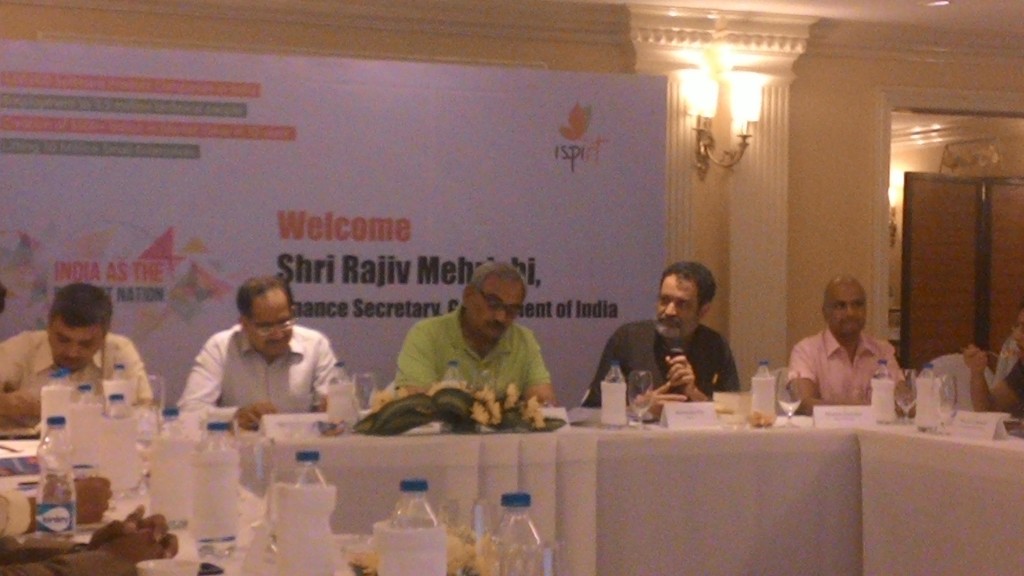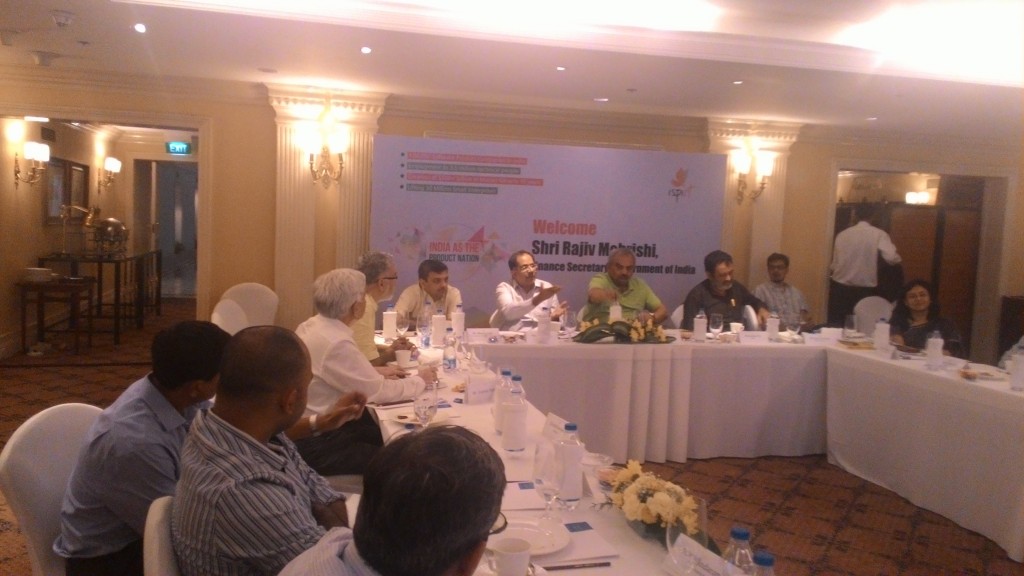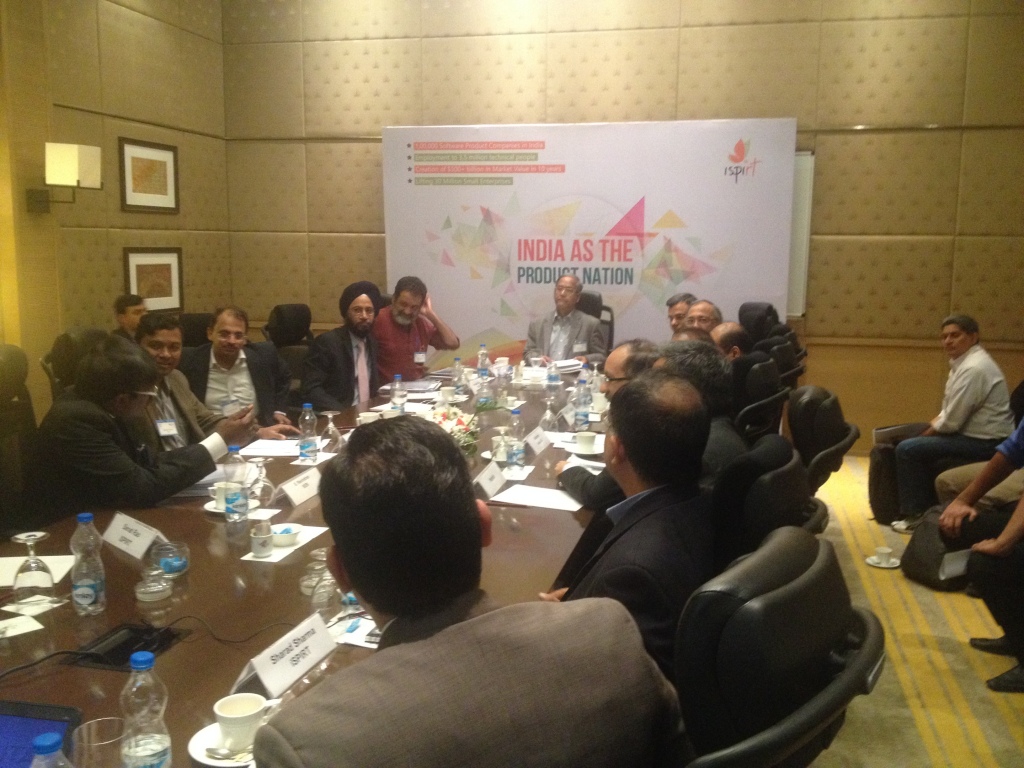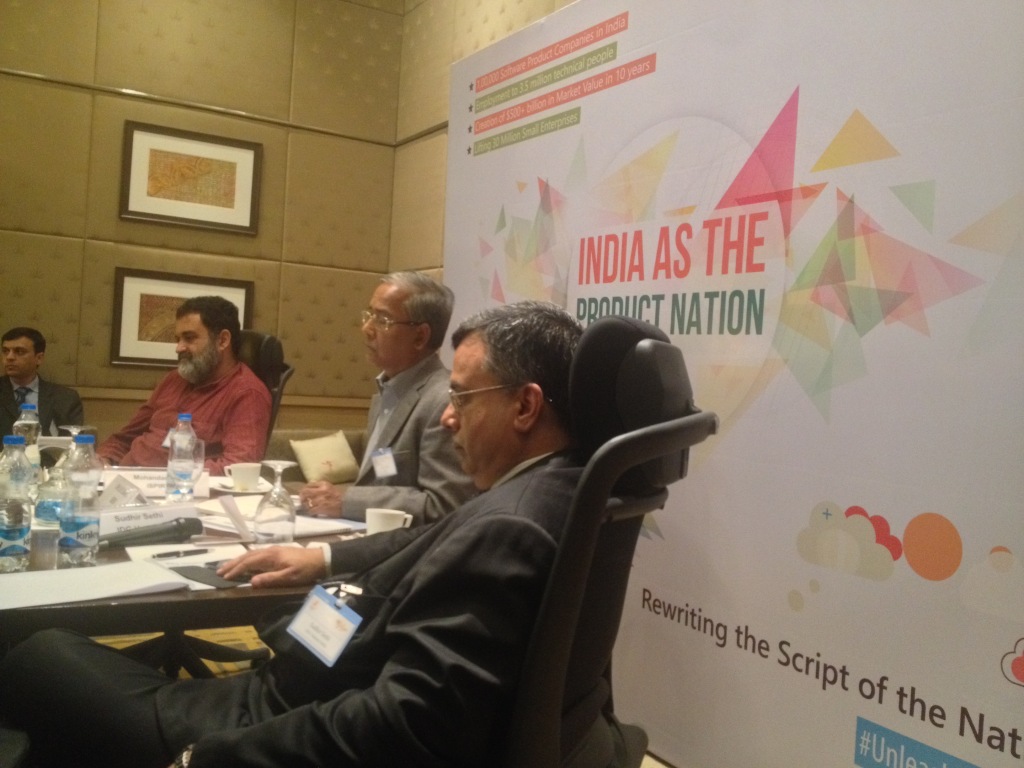ThinkInvestor is iSPIRT and ProductNation’s new initiative to serve as a catalyst between Venture Capital firms, Angels, Angel Networks and Entrepreneurs. It is to go beyond brochure ware and dig deeper into the whole life cycle of a typical investment; from introductions, funding, styles of on-going engagement, to exits. And in the process, capture their views on global and local trends, and the entrepreneurial ecosystem in India.
AngelPrime is a Seed-stage fund that sits between incubators/accelerators/angels and large VC firms. Started by serial entrepreneurs, Bala Parthasarathy, Shripati Acharya & Sanjay Swamy, Angelprime believes in getting deeply involved with the companies they invest in. They have been serial entrepreneurs that understand that entrepreneurship is a long and lonely journey and having multiple minds spend sleepless nights on the business dramatically increases the chances of its success.

ProductNation sat down with Sanjay Swamy, Managing Partner of AngelPrime for this interview.
Here’s what we heard :
What is AngelPrime? What’s your Stage, Focus and typical investment sweet spots?
We are a group of serial entrepreneurs and we bring the perspective of an entrepreneur to our fund. We are very seed stage and we are hands-on investors. In the early 70’s in Silicon Valley, VC firms worked side by side with entrepreneurs building their companies. Later on, they evolved to become more of financial investors. India now is somewhere in the middle. However, we believe in working side by side with the entrepreneur in building companies. We help our portfolio companies in product definition, building teams, building products, getting them validated in the market and building a global strategy if needed. There are Angels and Incubators that may invest in the order of a few lakhs. Typical early stage VC firms may do $2M to $5M and do 8 to 10 deals a year. We are in the middle, and we can dedicate a lot of time to the companies. We have bandwidth only to do 3 or so highly curated deals a year. Our typical investments have a broad range, from $100K to a $1M. Our sweet spot is $400K to $600K. Our focus is Technology-led Start ups, Mobile and Internet, Financial Services and Payments. All three founders of AngelPrime were volunteers with the UID program in India and so we are very interested in Identity related start-ups. We are seeing a lot of companies in the healthcare space and have invested in a recruiting start-up. Most important thing for us is how much value can we add.
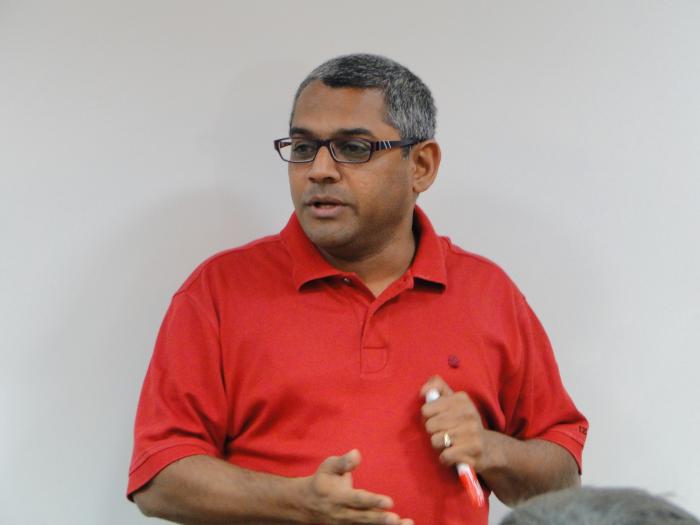
What’s the best way for an entrepreneur to get in touch with you? What works and what does not?
Referrals are still the best way to get in touch with us. However, we still get to know entrepreneurs and their companies through email. One of our portfolio companies HackerEarth, we bumped into at a conference! We are also finding early stage incubators to be a rich source of deals. We have found interesting companies at incubators like the Microsoft Accelerator, GSF India and Morpheus. We find that the deals we come across at these places have gone through some level of curation already, with something of a team in place, and some limited level of product validation already done. These are the kinds of referrals that we like! Typically we are the first institutional money and we are also the larger lead in a seed round.
How long does it take for you to decide on investing? What is your due diligence process?
The first thing we assess is the caliber of the entrepreneur; we look at the scrappiness of the entrepreneur and the typical two person (or so) team. If the members of the team are similar in backgrounds, that’s not necessarily a plus. We are looking for teams made up of people who are complementary in backgrounds but work well together.
The second thing that’s important is the size of the market. This is not something you can create. It is what it is, but we assess how the entrepreneur is wanting to go take a piece of that market.
Coming to the due diligence process, we try to move very fast. We don’t believe in stringing the entrepreneur along but sometimes additional market validation may be needed. Typically at this very early stage, very little has happened that we can do do due diligence on. However we look at how the company is structured and clean it up if we think it can create problems downstream. We make sure that the founders, vesting schedules, CAP structures are all set up properly. We look at the legalese and make sure that’s all good. We are very strong believers in clean and simple Silicon Valley style term sheets. No funky clauses; our liquidation preferences are usually 1X, non-participating.
Typical timelines for a decision have been as fast as 24 hours where the company is ready and it’s in our sweet spot. Sometimes we may need to go do some research on our own before a decision. Sometimes it becomes a question of our learning an area as well. Due diligence and paperwork takes about 3 weeks.
Once you have invested in a company, what’s your engagement model? How do you interact with these companies?
There are two ways we interact with our portfolio companies. The first one is the formal weekly or bi-weekly meeting. More interesting is the informal interactions we have. We have a co-location space in our office where many companies situate themselves at this stage of their development. It helps us to have a number of water cooler-type conversations with them. We learn about new things and we also provide our advice as relevant, and asked for by these companies. We tell these companies that we can take on a variety of roles for them all the way from mopping the floors to wearing a suit and meeting with bankers with them.
There is another way to look at this hand-holding, in three phases:
1. Experiments: We help them in do a series of experiments both in the technical approach, and also with the business model. These days the cost of doing experiments is very low and the cost of not doing them, very high! For example, in payments, is it a per transaction fee or a subscription model? The cost of doing A/B testing these days is not much. Many times we end up learning something from the entrepreneurs, when they push back and say “this is today – this is what works unlike something five years ago”, because they may be closer to the market.
2. Narrowing Down: The second phase is the weeding out of those experiments that failed and narrowing down the business and building the team for “scale-hacking”
3. Scaling: The third phase is scaling the business and in parallel preparing the company for the next round of funding. We address questions like – Do we raise additional monies here in India or the US and help facilitate introductions to suitable investors.
What are some of the exciting companies in your portfolio now? Exciting new business models?
Ezetap is a company we incubated, invested $5ook initially. It is a very exciting company where we took a very different approach than Square. We designed and developed the hardware in India instead of the usual approach of going to China for it! We took an Apple-esque approach to keeping all of the hardware and software development in house. The business model is also not a per transaction fee model like Square but a SaaS based subscription model. We raised a $3.5M Series A round from Social+Capital. Chamath Palihapitiya brought in other investors like Peter Thiel and David Sacks in this investment. Ezetap has gone on to raise another round from a consortium of Helion Ventures and Berggruen Holdings who are very well connected in Europe.
HackerEarth is a company that has put a nice business spin on TopCoder!. They are providing a very useful solution to the problem of sifting through 100’s of resumes in India to find those few programmers whose skills are excellent! HackerEarth has solved this problem with some clever algorithms that automates this sifting process. Top companies like Adobe, inMobi and Symantec are using this solution for their hiring. The two founders are from IIT Roorkee, in their early 20’s and are phenomenal in their speed of implementation of ideas!
We have invested in another company in the Mobile Wallet space that we have not yet announced. This was also founded by two young entrepreneurs whose ability to execute is phenomenal, have boundless energy and ultra capital efficient! We have invested in another company, SmartOwner. SmartOwner is a company that allows individuals to invest in highly curated real estate deals for investment purposes.
ZipDial is not technically part of this fund but I am a co-founder, and we all individually are investors in the company. ZipDial makes clever use of the “Missed Calls” phenomenon in India where a call is made but never completed by mutual agreement. ZipDial piggybacks various kinds of actions – marketing, customer service, etc. You could send marketing messages or customer service can send back a message about being very busy now and other suggested times to call. Political parties in India like the Congress and BJP are using it for increasing engagement of voters. Out of AirTel’s 200M customers, only 60M or so have ever sent a text message. Text messaging literacy is not that high but number literacy is. They can dial numbers easily. By dialing a number toll-free (since it is a missed call), you can get feedback or information. For example, a market survey ZipDial missed call sends back a question about your MLA’s performance. It sends two or more phone numbers for each of the possible responses. You just do a missed call to the right one and it is done! This is a completely India-based business model but the funny thing is that the founder is an American, Valerie Wagoner! ZipDial was rated #8 in FastCompany’s most innovative companies!
What kind of advice would you have for someone interested in becoming an entrepreneur, especially from a stable job like at a services company?
There are some very great fortunes to be made in the entrepreneurial ecosystem. I think we need more people willing to be early employees in start-up companies. The risks look daunting but the rewards, especially in India could be huge! Get out of your comfort zone and take some risks! The opportunity cost of not trying is very big! The technical challenges involved in putting together an innovative start-up that changes people’s lives, could be rewarding in itself. You get to conceptualize products, test them in the market and if it works out, watch it scale. If it doesn’t work out, you can always go back to a safe job.
A lot of entrepreneurs hesitate to say that they are in it for the money. Culturally, we are not yet attuned to this but there is no shame in it! Secondly, we are not accustomed to failure and fear the stigma attached to it! We don’t celebrate failure – the best lessons are when things go wrong!
Exits are crucial for Product companies to have money come in through the front door as investments. What are your thoughts on what’s happening in India?
There have been very good exits like Little Eye Labs and the Redbus, The Little Eye Labs was a good technology company exit and Redbus took a dis-aggregated market and consolidated it nicely. MakeMyTrip had an IPO exit. There were also a number of exits that were not talked about – VentureInfoTech was a $100M+ acquisition by a european company. Prizm payments was acquired by Hitachi for over $275M. For technology companies, Silicon Valley still seems to be the destination. Services companies are being acquired by European entities. Considering returns, we need a little more patience in India. Things take longer but have started happening.
We advise our companies to think they are building houses as if they are going to live in them! People will come to buy the house at the right price if it is built right!
